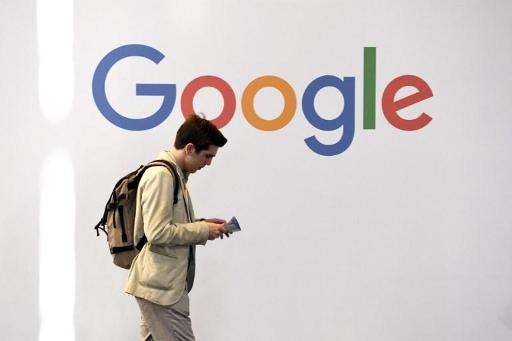Wednesday, the EU imposed a record 4.34 billion euros fine on Google, this time in connection with the Android antitrust file, a decision that risks damaging its relations with the US even more. This financial sanction, aiming at punishing the American company for having misused the dominant position of its smartphone exploitation system, Android, in order to consolidate its online research service supremacy, smashes the previous record, already detained by Google. “Google used illicit practices to cement its dominant position in online research,’’ accused the EU Competition Commissioner, Margrethe Vestager, during a Brussels press conference.
“Google’s research engine is its flagship product. Each year, Google generates more than 95 billion dollars revenue through advertisements shown and clicked on by Google Search users, and a large part of its income is due to the increasing power of mobile devices such as smartphones and tablets,’’ added the Danish Commissioner.
The company had already been condemned, on 27 June 2017, by the European Commission, to pay a record 2.42 billion euro fine for having misused its dominant position in online research by favoring its price comparator “Google Shopping,” to the detriment of competing services.
The amount of the fine is decided at the last minute and can theoretically reach up to 10% of the company’s overall worldwide sales, which according to Google’s parent company, Alphabet, was as high as 110.9 billion dollars in 2017 (94.7 billion euros).
The European Commission also requested the American company “to put an end to its illicit practices within 90 days, failing which, penalty payments would be imposed, rising up to 5% of Alphabet’s average daily sale revenue worldwide.’’ “Google will appeal against this European administration’s decision,’’ announced immediately Google’s spokesperson, Al Verney, in a press communication.
This new sanction against the American giant comes within a particularly tense context between the EU and the US, in which sensitive topics are numerous, such as NATO and trade. Next Wednesday, the EU Commission President Jean-Claude Juncker goes to Washington in order to attempt to defuse the trade conflict that divides the EU and the American President Donald Trump, who is prepared to tax European car imports into his country.
The Android antitrust file — the exploitation system used by 80% of the devices in Europe and worldwide, which is the equivalent of the iOS for Apple’s iPhones — has been on the EU Commission’s radar for several years. In its communication, the EU Commission described its complaints against Google in detail.
Firstly, the Californian group required manufacturers to preinstall the Google Search application and its navigator (Chrome) as a condition for them to be granted the license for its online applications store (Play Store).
Secondly, it paid a number of great manufacturers and big mobile network operators so that they would preinstall Google applications only on their devices.
And thirdly, it prevented the manufacturers who wished to preinstall the Google applications to sell even one smart mobile device that runs on other Android versions unapproved by Google.
In the Shopping antitrust case, Google had submitted solutions in September, that are still under investigation by the European Commission. The Californian group had also deposed before the EU Court of Justice (CJEU), in September 2017, an appeal against the Brussels fine, which it will certainly do again in the Android case.
Considering the complexity of the affairs, approximately two years should be necessary before a court ruling.
Besides Shopping and Android, the European Commission has a third iron in the fire against Google’s advertisement practices.
It criticizes the group since 14 July 2016 for having misused its dominant position with AdSense, its advertising society (80% of the market in Europe), by artificially limiting the possibility of third web sites to advertise contextual ads coming from competitors. There too, a fine could be in view.
The first Silicon Valley company to have been imposed a gigantic fine from the European Commission in an antitrust case is Microsoft. In 2004, the American IT group was the object of a financial sanction of 497 million euros for having refused to provide complete technical documentation to its competitors, so that they might create software that is fully compatible with the Windows exploitation system.
The Brussels Times

